ARTICLE AD BOX

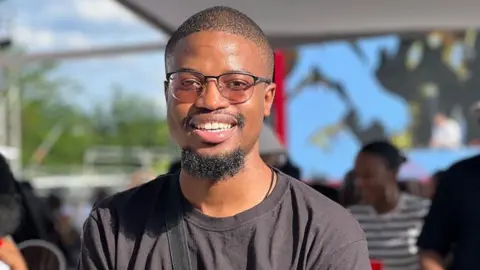 Karabo Mahapa
Karabo Mahapa
Karabo “Kay” Mahapa wants to encourage his young audience to go out and vote
South Africa’s social media influencers, popular with the youth, have been stepping into a new role ahead of this week’s general election – political mobilisers.
With 42% of registered voters under the age of 40, the younger demographic could have a big role to play in Wednesday's election.
Nestled in between videos of jokes about power cuts and relationships, Karabo “Kay” Mahapa, a TikTok creator who boasts over 350,000 followers, takes a detour from his usual content to tell people to get out and vote.
The messages have targeted the young electorate, which a recent survey identified as being pessimistic about the country's future
The recurring question under Mahapa's election-themed videos – “Who are we voting for?” - reflects a generation’s uncertainty.
“I simply want to highlight the importance of voting,” he told the BBC.
While Mahapa has never explicitly told his followers which party to put their cross next to, he has made it clear which one he will not be voting for.
In one of his videos, which has over 1.7 million views, he earnestly asks if people will agree to not back the governing African National Congress (ANC).
It is impossible to know how many of those will agree with Mahapa but if opinion polls are correct then the ANC may lose its outright majority in parliament for the first time since 1994, at the end of white-minority rule.
In recent years, the party has been bogged down by allegations of corruption and economic mismanagement after three decades in power.
Under the Mahapa video, one person commented: “As much as we don't know who to vote for the ANC must go. We are tired of this toxic relationship with them.”
On the other hand, there is no great enthusiasm for the main opposition party, the Democratic Alliance, in the comments section either.
The influencing business in South Africa has moved past the stereotype of selling perfumes, restaurants and clothing brands. It now includes debating and promoting ideas and political philosophies.
Ronel Gerber, general manager at FGX studios, a marketing agency based in Johannesburg, told the BBC that marketing spending on employing influencers has grown by 78% in the last three years.
“Influencers are the new word of mouth,” she said.
Beauty influencer Kay Yarms, who has over a half a million followers on Instagram, put this into action in February, when she used her platform to entice her followers into registering to vote.
The social media sensation posted a link to a fresh YouTube video on her Instagram story, but instead of new content it redirected people to the voter registration website.
One user said if it were not for the beauty guru, she would not have registered.
Rhodes University student Asithandile Mayongo, 22, said access to information on social media has pushed him to take more notice of the election - especially as a first-time voter.
"Social media has provided me with enough resources to help me learn about voting, electoral process and the political issues," he told the BBC.
Other influencers have used comedy to stimulate discussion and push people to the polls.
A video by Bouwer Bosch, a 40-year-old comedian, about election promises has amassed over two million views.
In the post he jokes about the current government and the issues that plague the country.
It is a humorous take on the current state of South Africa and also a way to push people into action.
“Comedy is like medicine,” he told the BBC, and hopes that it can open a dialogue and encourage people to get more involved in politics.
"I want to show people where we are at the moment and leave them to make their own informed decision," the comedian said.
Political parties have also taken notice of this new-found influencer power.
- South Africa in eight charts ahead of crucial vote
- Desperate search for jobs overshadows election
- Global Story podcast: 'Democracy means nothing to me'
Mahapa said he was approached by a political party to encourage his followers in their direction, but he declined. He did not disclose which one it was.
He told the BBC that many influencers, both big and small, have been approached by political parties and paid to push their propaganda.
Ms Gerber confirmed that this was a common practice.
Mahapa does not judge content creators who take the money as he believes the current economic situation in South Africa – with an unemployment rate of nearly 33% - has left many people desperate.

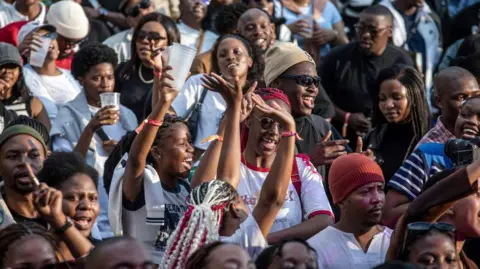 Getty Images
Getty Images
The younger population makes up a significant chunk of the electorate
Nevertheless, this phenomenon of parties buying influence through content creators scares him.
As a consequence, Mahapa has tried to harness the power of social media to get his audience engaged in the election.
“I call it edutainment – to educate and inform people,” he said.
This type of edutainment content is the kind Johannesburg resident Fay Williams, 35, watches on TikTok.
Ms Williams says she tracks influencers like Samantha Jansen, who has about 265,000 TikTok followers and Darren Campher who has 128,000 TikTok followers, who both speak about the political situation in South Africa.
“They present the facts and share their insights to help inform their audiences,” she said.
She told the BBC that while social media will not influence her vote, it did bring “awareness to my process of choosing a party”.
Although some influencers have taken on the mammoth task of disseminating information about the individual parties' manifestos, Ms Williams said people must do their own research.
“Influencers play a role in this education by prompting critical thinking, which is why there is a desire to follow those who can stimulate thoughtful discussions,” she said.
Mahapa said that influencers should use their power responsibly but recognised that voting alone will not solve all of South Africa’s problems.
Nevertheless, he is proud of his role in driving people to the ballot box.


More about South Africa's 2024 election:

 Getty Images/BBC
Getty Images/BBC

 7 months ago
59
7 months ago
59
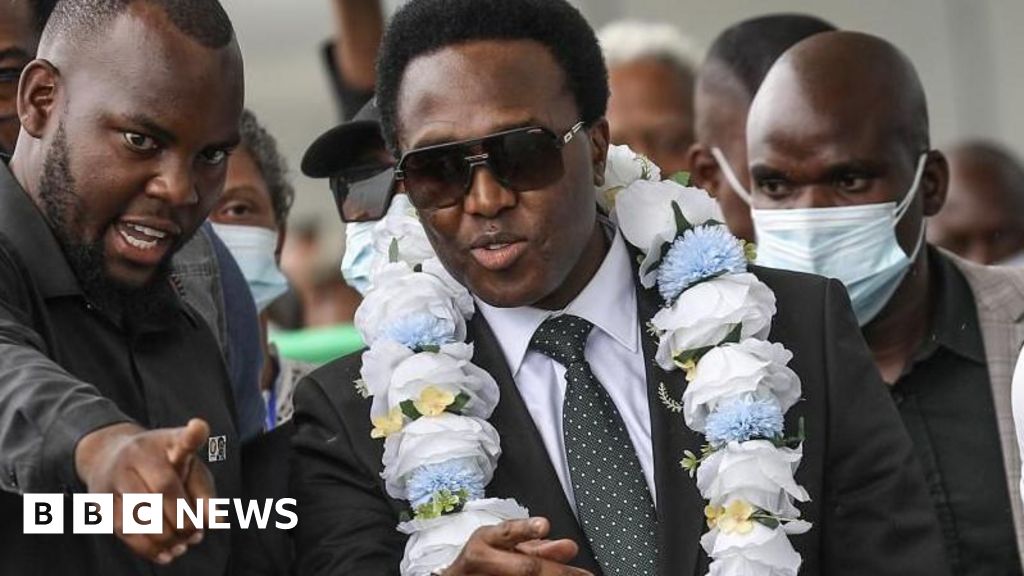
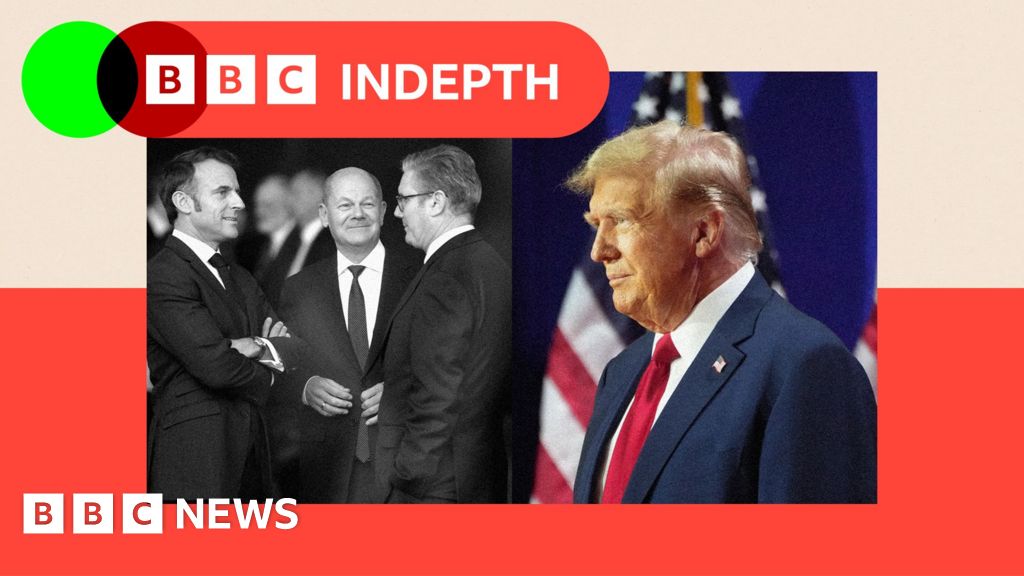
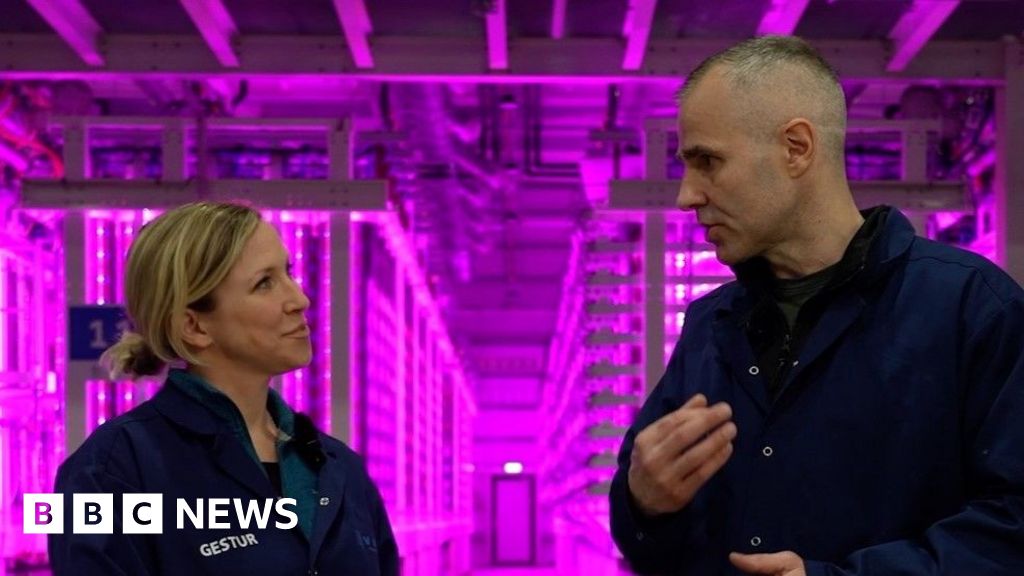





 English (US) ·
English (US) ·